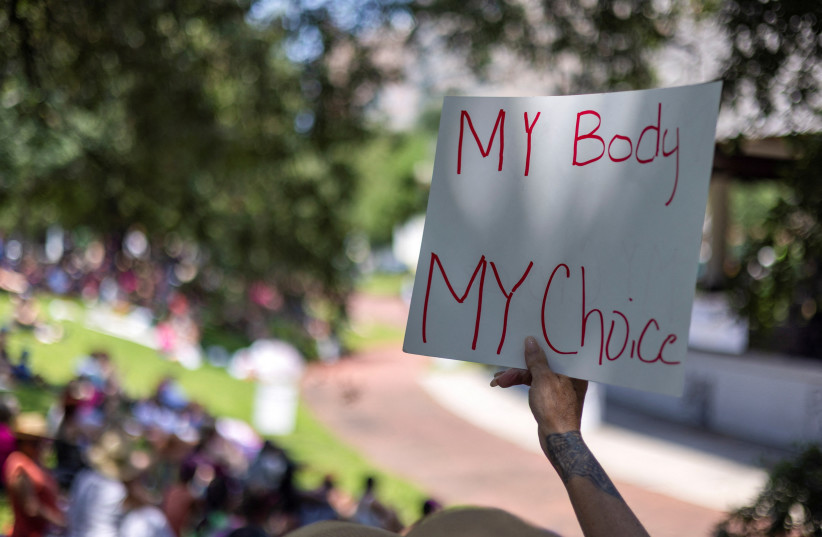In most Western countries, the principles of personal liberty and autonomy play central roles in healthcare decision-making. This stems from the belief that each person has the right to make critical decisions concerning his or her own body. These choices can relate to “decision calls” in cases of medical uncertainty in which the patient is given the choice to make risk-benefit calculations. The doctor can provide a diagnosis, prognosis, and the best guestimate for optimal treatment, but the patient must make the ultimate decision.
In other circumstances, these choices might be offered for medical interventions deemed by others as non-therapeutic, whether they relate to abortion, gender transition, or active euthanasia. The right to decide what to do with one’s body becomes complicated in cases where these interventions go against the conscience of doctors and nurses who experience moral distress when participating in activities they deem immoral. Granting liberty to the patient can impinge on the liberty of a healthcare professional who is deeply opposed to providing such treatments. Ideally, only healthcare providers with no conscientious objection would be asked to take part in such interventions.
This works best in military or criminal settings, such as administering physical pressure (i.e., torture) or the death penalty. It becomes much more complicated when some controversial procedures become “standard options” within medical centers.
When a medical procedure goes against religious beliefs
Healthcare institutions should provide ways for doctors and nurses not to participate in such controversial activities. But if accommodations are not made, may a Jew perform or participate in a procedure that goes against his or her religious beliefs? The question relates to direct participation in prohibited activities, as well as referring patients to where they can receive these treatments.
Jews may not directly perform prohibited actions, even if the “beneficiary” requests it. This would include, for example, performing a late-term, non-therapeutic abortion that would be universally forbidden under Jewish law.

More complicated cases emerge when Jews are requested to indirectly assist in a forbidden procedure or to refer a patient to someone who will carry it out. In Canada, for example, euthanasia, termed “medical assistance in dying” (MAiD), is the source of more than four percent of annual deaths (over 13,000 people). Under Canadian law, healthcare providers are required to supply “effective referral” – i.e., to effectively direct a patient to a doctor or agency that will provide them with euthanasia. Approximately 80% of the patients who consult with these agencies go through with MAiD. Must a doctor give up his job rather than refer someone for these services?
In general, Jews are forbidden to facilitate someone else’s performance of an illicit action under the prohibition of not placing a “stumbling block” before the spiritually blind (lifnei iver). This includes not only helping Jews violate Jewish law but also assisting non-Jews to violate one of the seven Noahide laws, such as illicit bloodshed.
The prohibition, however, is somewhat relaxed in cases where the person could perform the prohibition without the help of a committed Jew. Such “aiding and abetting” (mesaye’a), as it were, is frequently allowed, when absolutely necessary, if dealing with gentiles or Jews uninterested in the strictures of Jewish law. In modern healthcare settings, patients can gain information about and access to these prohibited services in many ways. This begs the question of why healthcare providers should be legally required to refer patients to procedures that go against their conscience. Yet it also greatly reduces the potential violation of “aiding and abetting” for referral, especially when patients might not go through with the procedure.
Of course, the line between direct and indirect participation is not always clear. Rabbis Yosef Shalom Elyashiv and Shlomo Zalman Auerbach, for example, allowed ultrasound technicians to perform preparatory tests on pregnant women whose doctors intended to utilize that information in an abortion not permitted by Jewish law. They did not permit an anesthesiologist to sedate the pregnant woman, deeming this an act that directly contributed to the killing of the fetus. They further contended that an anesthesiologist would even have to give up his or her job rather than perform this act.
Rabbis Eliezer Waldenburg and Asher Weiss, however, argue that Halacha (Jewish law) does not make such a far-reaching demand. They contend that the work of the anesthesiologist is focused on the health of the woman and sufficiently distant from the actual act of aborting the fetus. By their own admission, their lenient rulings were inspired by the desire to ensure that observant Jews can serve in the fullest range of medical fields, which is in the interests of our community.
The particular details of each case are important. As always, it is preferable for healthcare providers to seek guidance concerning their individual circumstances. My organization, Ematai (www.ematai.org), operates a helpline to answer these queries.
Overall, we don’t want healthcare professionals, Jewish or not, to have to act against their consciences. Yet we also benefit from a world in which our own healthcare providers do not impose their values on Jews. What one person paternalistically deems as being in someone’s “best interests” can be seen as morally insulting by their alleged beneficiaries. In pluralistic societies, we must strike a balance between protecting the moral ecology and preserving the liberties from which all members of society benefit.
Both in Israel and abroad, we must think deeply about these dilemmas in the coming years. ■
The writer is the executive director of Ematai (www.ematai.org) and author of Ethics of Our Fighters: A Jewish View on War & Morality.
